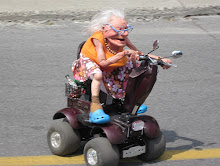 Rhode Island Reds in a lithograph, c. 1915. | |
| Conservation status | |
| Other names | Rhode Islands |
Three important types seemed to have had the greatest influence on the Rhode Island Red: Asiatics, Game, and Mediterranean. There are also early references to reddish colored Shanghais. At this time, the Asiatic Cochins and Brahmas were often confused and called by many descriptive names—Pootras, Chittagongs, Shanghais, and Cochin Chinas. These large birds contributed size and egg-laying ability. The upright red Malay Game was also an important contributor to the Rhode Island Red, giving the breed its deep color, hard feathers, and hardiness. The Malay itself, however, was never popular in North America. The Brown Leghorn also contributed excellent egg production. And there are suggestions of Cornish Game, Java, and Wyandotte in the Rhode Island Red.
The Golden Buff or Golden Red, as the breed was originally called, was first exhibited about 1879 but was bred in large numbers for practical uses before then. The single-combed Rhode Island Red was admitted to the Standard of Perfection in 1904, and a rose-combed variety was entered the next year. In the early years, it was common to see both rose- and single-combed birds in the same flock.
The Rhode Island Red is widely considered to be the most successful dual-purpose breed in North America, although the Barred Plymouth Rock is a close second. Exported to Britain and many other countries, the Rhode Island Red may be the world’s most widely distributed chicken breed. The breed is probably the best egg-layer of the dual-purpose chickens and has been widely used for that function, laying in the range of 250 eggs per year. It is not a meat specialist, but its size and conformation make for a good eating bird. Its dark-colored pinfeathers were definitely a handicap in its becoming a more popular market bird.
Read more: http://www.motherearthnews.com/sustainable-farming/Rhode-Island-Red-heritage-poultry-zeylaf.aspx#ixzz2QerPgHU7


1 comment:
Now when I go outside Amanda's chickens come running and they follow me...follow me CLOSE...I walk faster and they walk faster,,,I hate it,,,Last time I was here they did not follow me....
Post a Comment